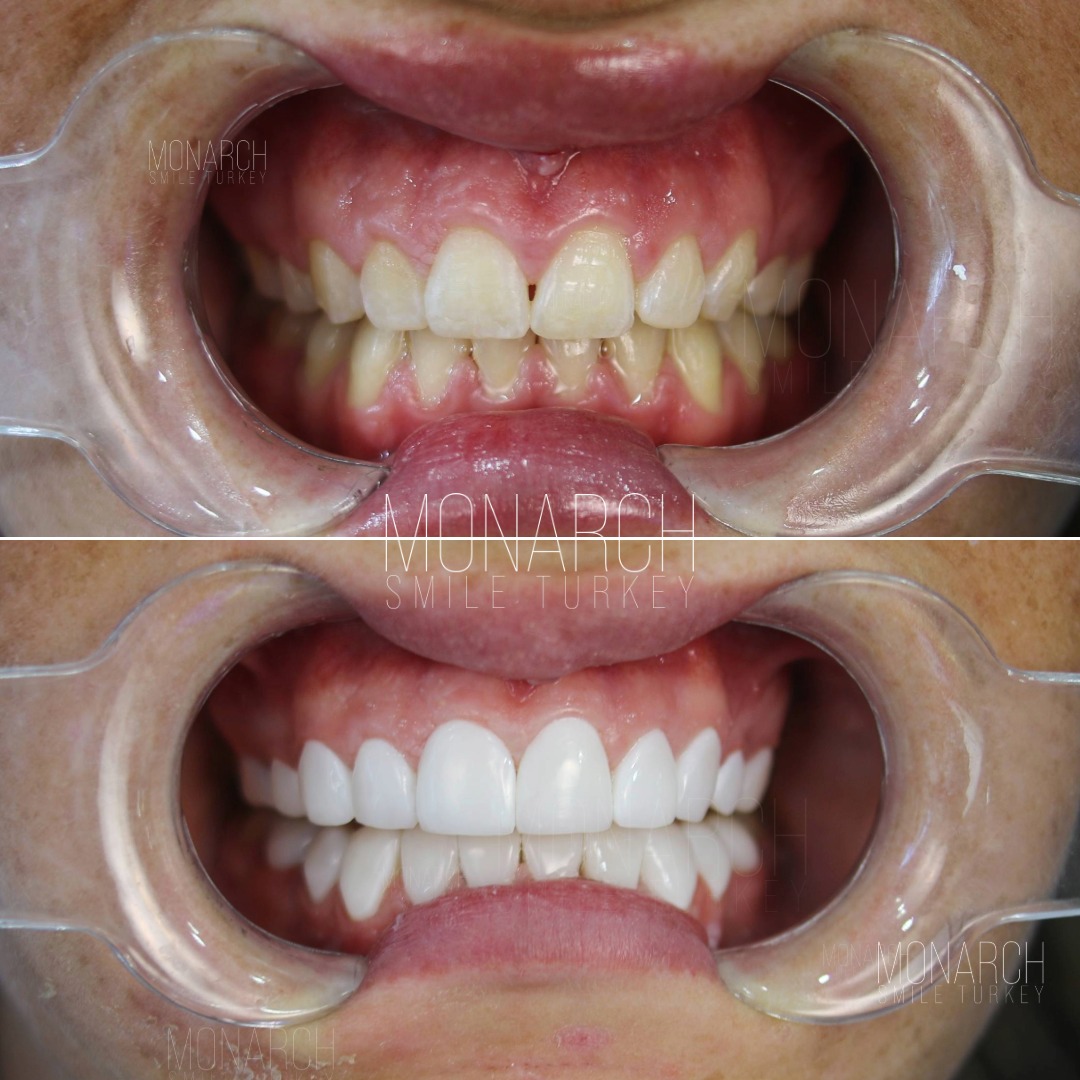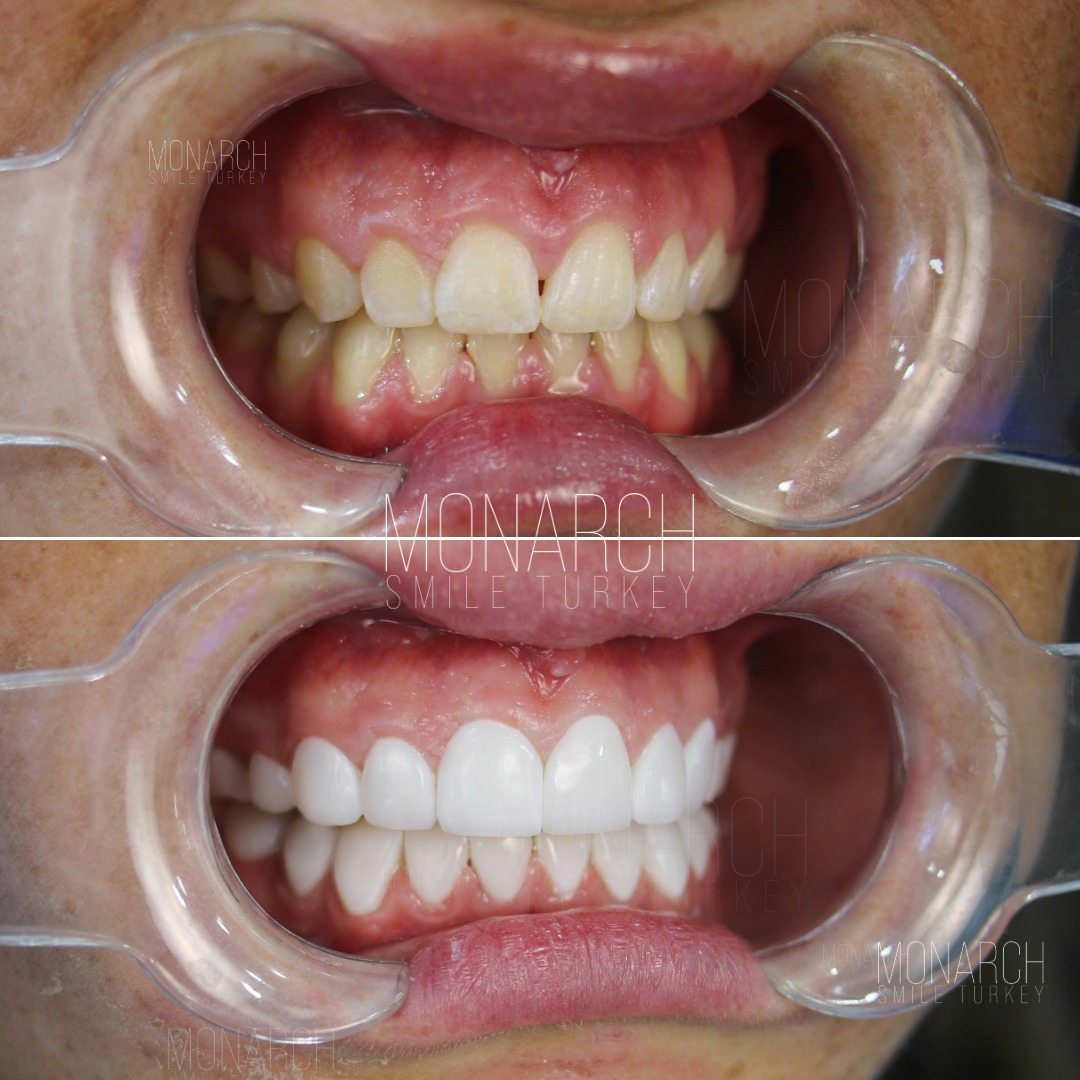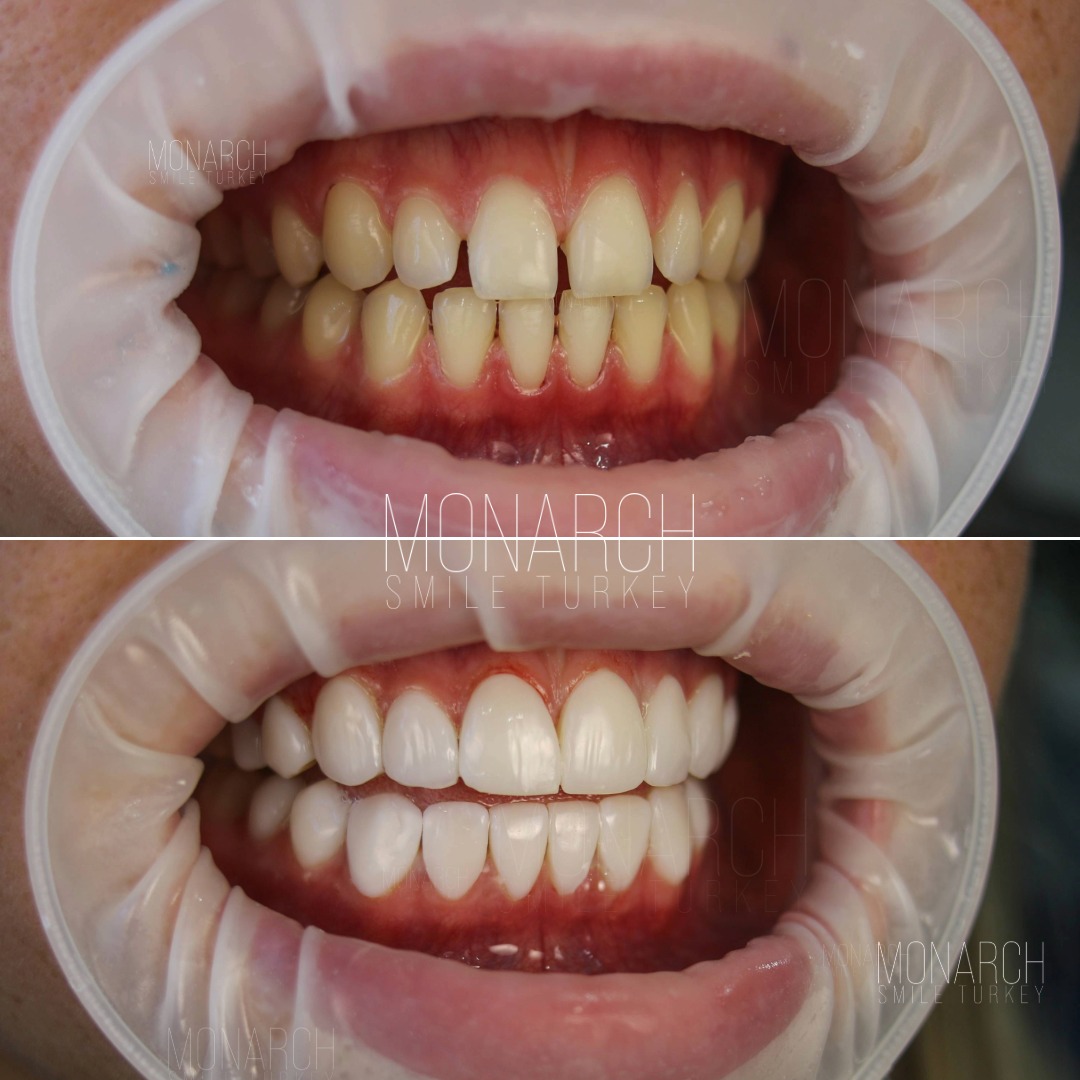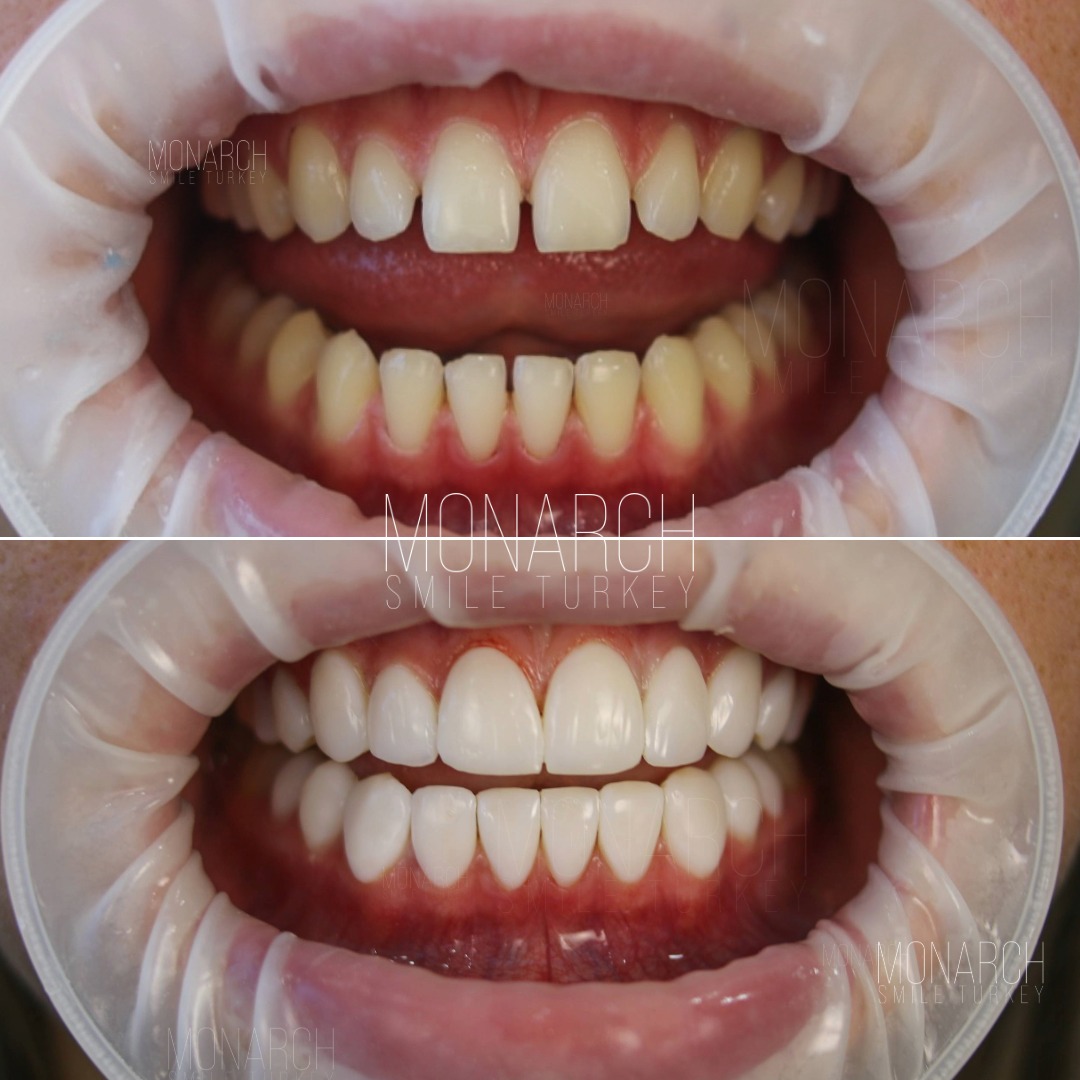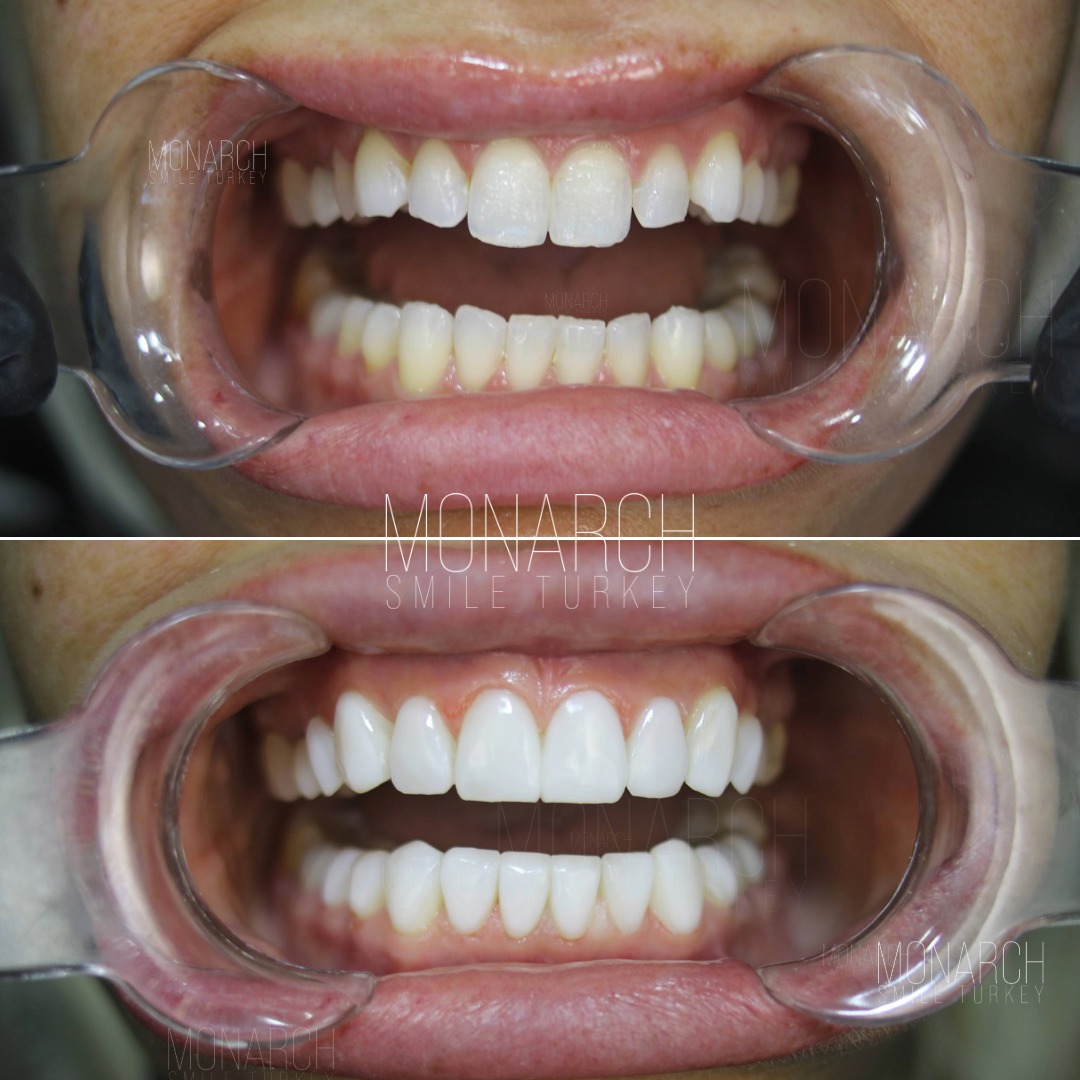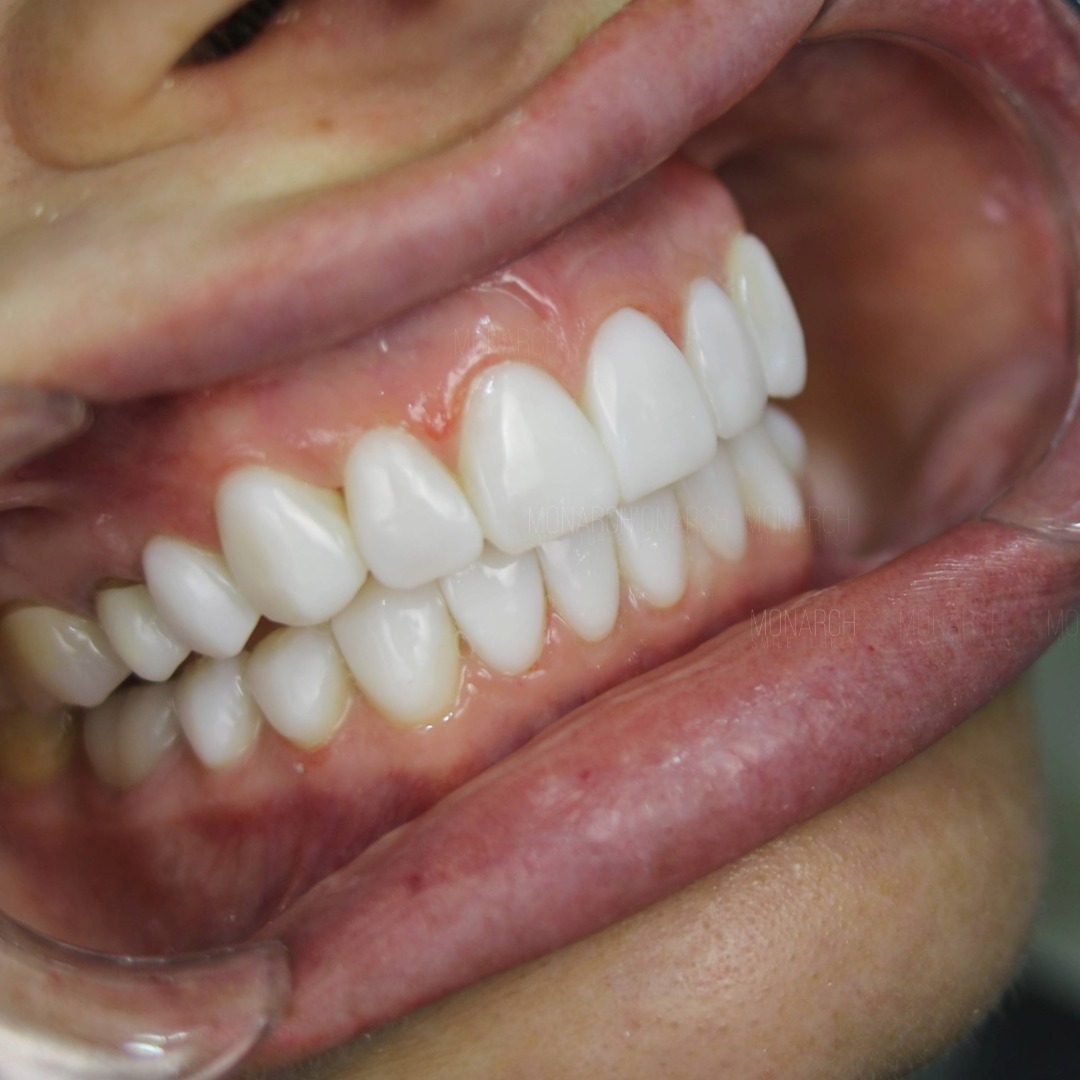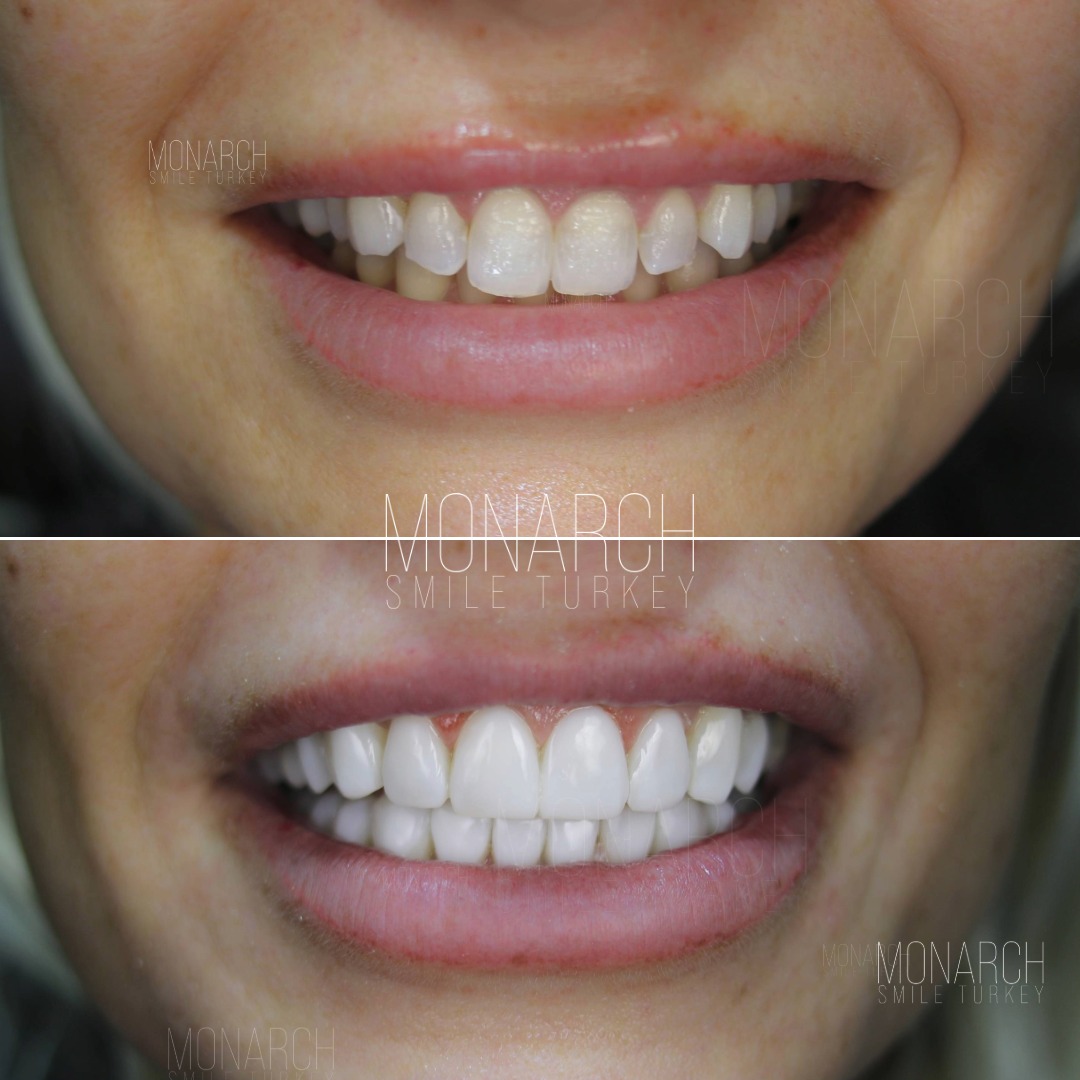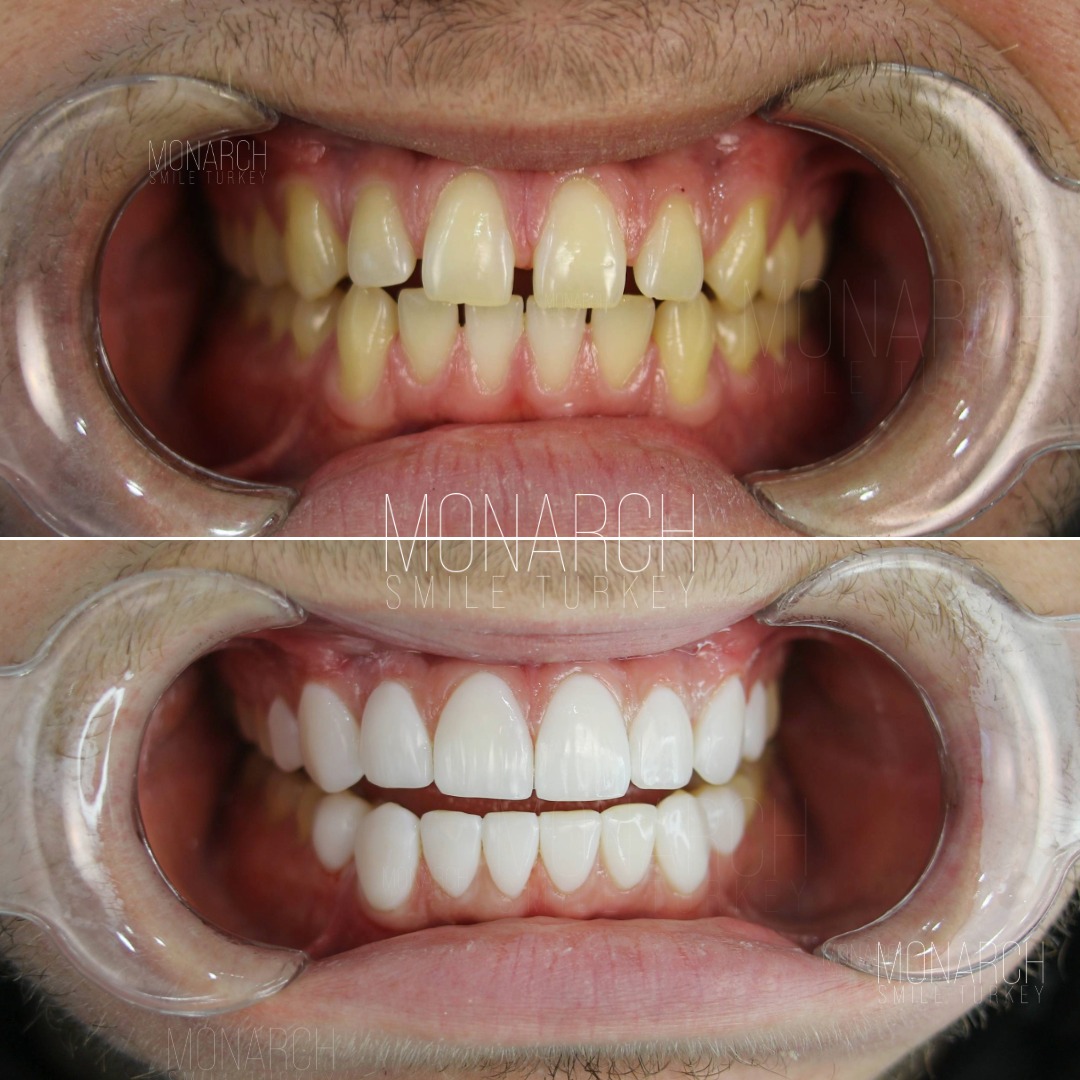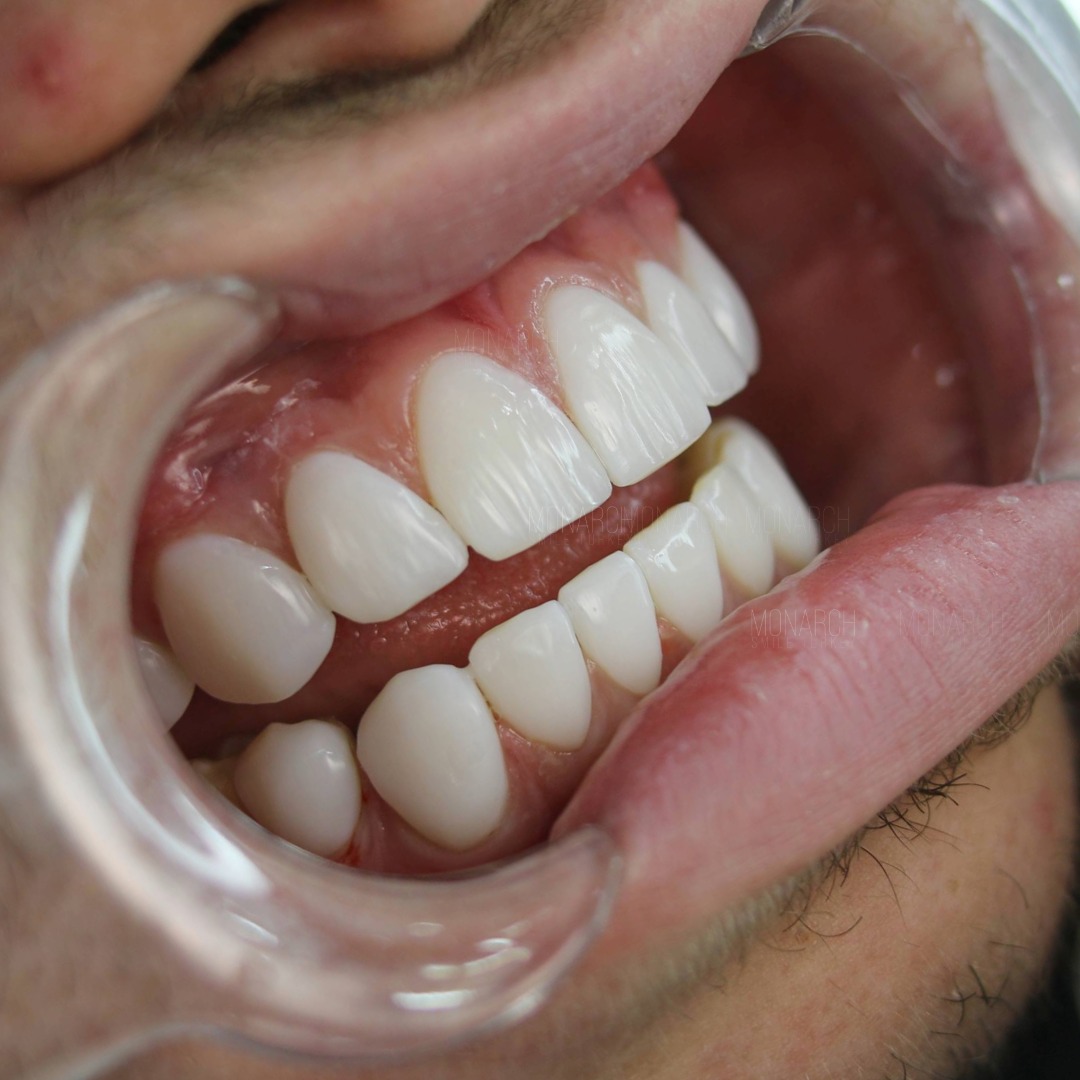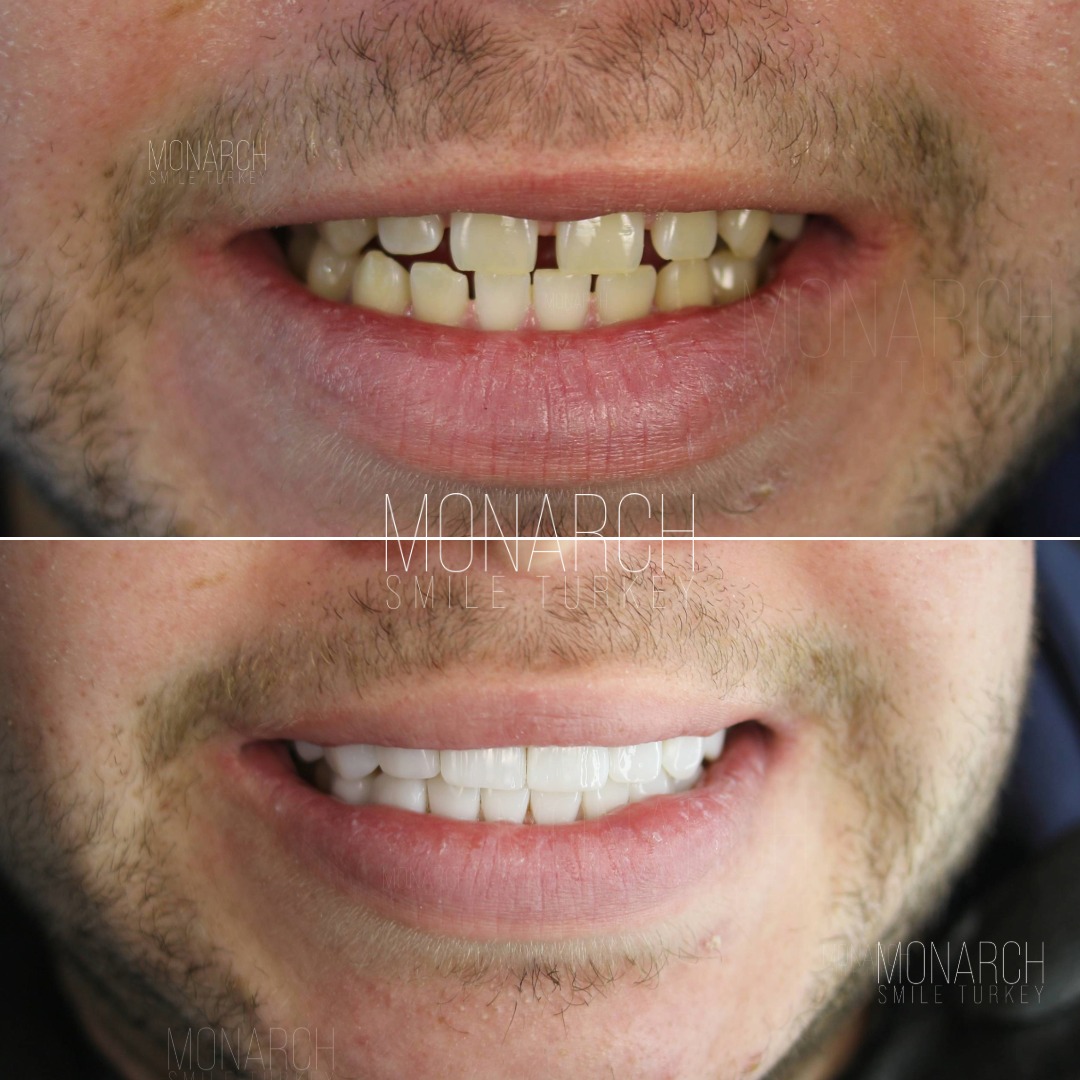What are composite veneers?
Composite veneers are thin layers of tooth-coloured material that your dentist applies directly to the front of your teeth. Composite veneers can either be applied directly to the teeth during a dental visit or created externally in a dental laboratory and then attached to the teeth with resin-based cement.

They're great if you've got small chips, gaps, or stains that just won't go away. The best part? Everything happens in one visit. Your dentist shapes them by hand, polishes them, and you walk out with a brand-new smile.
Quick fix? Yes. Long-lasting? They're not forever but pretty good, if you take care of them.
Composite resin veneers in Turkey, Antalya
Composite resin veneers are a quick and affordable way to enhance your smile. The material bonds directly to your tooth, and your dentist shapes it right there in the chair. It's minimally invasive.
Why Antalya?
Well, it's known for more than its beaches. The city is packed with clinics using up-to-date techniques and high-quality materials. You also get the comfort of English-speaking professionals and all-inclusive treatment packages. So, you can smile brighter without breaking the bank.
Composite veneers procedure in Antalya, Turkey
Composite veneers aren't as complicated as they sound. The process is usually quick, done in just one visit, and doesn't require anything too intense. You won't feel pain, and most people are surprised by how smoothly it all goes.
Just sit back, relax, and let the dentist work like an artist with a brush.
How are composite veneers done in Turkey?
First, your dentist examines your teeth. A quick check, maybe a few photos, and sometimes a scan to plan the shape. Then they clean the surface of your tooth to make sure everything sticks well. Think of it like prepping a wall before painting.
Next comes the bonding agent. It's a kind of glue that helps the composite material attach properly. Thereafter, the dentist starts applying the composite layer by layer. Each layer is shaped right there on your tooth and hardened with a special light.
Once the shape is just right, they move on to polishing. This step gives the tooth its smooth, natural shine. In the end, your teeth look more even, whiter, and much more balanced.
Resin-based composite veneers generally are placed in one appointment. No lab work, no waiting. Everything's done chairside like a little art session, just for your smile.
Composite bonding vs veneers
|
Composite bonding |
Veneers |
|
One visit |
Multiple visits |
|
No lab work> |
Custom lab-made |
|
Less expensive |
More expensive |
|
Shorter lifespan |
Longer-lasting |
|
Easily repairable |
Harder to fix |
|
No enamel removal (usually) |
Enamel shaving required |
Great for small fixes |
Better for full smile makeover |
Quick and reversible |
Durable but permanent |
Composite bonding and veneers might seem similar, but they work quite differently.
Bonding is quicker. It's done in one visit. The dentist sculpts the material directly on your tooth. No lab, no wait. Veneers, on the other hand, need more prep and usually at least two visits. First, your tooth is shaped a bit, then a custom shell is made and later placed.
Veneers last longer and look more like natural enamel. But bonding is cheaper and easier to repair. So?
Quick fix or long-term investment?
Bonding is the shortcut.
Veneers are the upgrade.
Composite veneers vs porcelain veneers
|
Composite veneers |
Porcelain veneers |
|
Applied in a single visit. Results are immediate. |
Made in a lab. Usually takes 2-3 appointments. |
|
More affordable. Great for short-term budgets.> |
More expensive but a long-term investment. |
|
Easy to repair if chipped. |
If damaged, it usually needs full replacement. |
|
May stain or discolor over time. |
Stain-resistant and holds color beautifully. |
|
Requires minimal enamel removal. |
Slightly more tooth reduction is needed. |
|
Lasts around 4-5 years on average. |
Can last 10-15 years or more with good care. |
Perfect for quick aesthetic fixes. |
Best for a lasting and flawless smile. |
Looks nice but slightly less natural. |
Mimics natural teeth extremely well. |
A comparison of them is in the table. Think of composite veneers like a quick makeover. They're shaped directly on your teeth in one visit. Simple, fast, and budget-friendly. But they're a little more delicate. They can stain over time and might not hold up as long.
Now imagine porcelain veneers (internal) as custom-tailored suits. They take longer to prepare, but the result? Smoother, glossier, and way more durable. They're stronger, resist staining, and keep their shine for years.
Wondering about comfort? Both feel natural once in place. But in terms of detail, porcelain mimics real enamel better. It's harder to tell them apart from natural teeth.
Every smile is different. So, the right choice depends on what matters more to you speed or long-term sparkle.
Difference between composite bonding and composite veneers
Composite bonding repairs or reshapes part of a tooth. Composite veneers cover the whole front surface to improve the smile. The technique, coverage, and purpose are a bit different.
A more detailed comparison has already been shared above; feel free to check that out too.
Difference Between Porcelain Veneers and Composite Veneers?
Porcelain veneers are made in a lab and bonded later. Composite veneers are built directly on the tooth during your visit. One lasts longer; the other is faster and more affordable.
We've already done a full comparison above. You can scroll up to find all the key differences.
Composite veneers cost in Turkey
The price depends on how many teeth you want done, the condition of your smile, and if you're adding treatments like whitening. Things like consultations, follow-ups, and materials can also change the total.
No hidden fees here. Monarchsmile and Dt. Ebru Yuceer give you full transparency.
Want your exact price? Book a quick online consult and get your custom quote today.
Composite veneers before and after
Frequently Asked Questions
How long do composite veneers last?
Composite veneers usually last 5 to 7 years.
But the way you care for them matters. If you brush well, avoid biting hard things (like opening nuts with your teeth!), and see your dentist regularly, they stay nice much longer.
Drink too much coffee? Or smoke? That can stain or wear them faster.
Tiny habits, big impact. So… do they last forever? Nope. But with the right care, they stay beautiful for years.
Do composite veneers stain?
Yes, they can if you don't care for them. But not in the way you might think.
Composite veneers don't behave like natural teeth or porcelain ones. They're made from a type of resin, and while it looks great at first, it's a little more porous. That means things like coffee, tea, red wine, and even dark berries can slowly sneak in and leave a mark.
The good news? They don't stain overnight. It usually happens gradually, especially if you're sipping dark drinks every day or you smoke. Poor oral hygiene speeds it up too.
Porcelain veneers, on the other hand, are more like glossy tiles; the're smoother and much more stain-resistant. But composite still does the job, as long as you're realistic about its limits.
Can it be fixed?
Yes. Your dentist can polish them. Sometimes even refresh or replace just the stained part. But prevention is way better.
Are composite veneers good?
Yes, they're actually a smart choice, especially if you're after a quick, affordable smile upgrade.
Composite veneers can fix chips, gaps, uneven shapes, and mild discolouration. The best part? You usually get them done in just one visit. No waiting, no lab work. You walk in with one smile and walk out with another.
Painful? No.
They also cost less than porcelain, and if one gets damaged, it's easy to repair. That's a big plus for anyone on a budget or not ready for permanent porcelain.
Just keep in mind they need more upkeep than porcelain. But treat them right, and they'll serve you well.
Is composite bonding better than veneers?
Not really. We've already gone over the details above!
Composite bonding is quicker and cheaper. It's great for small fixes—like a chipped tooth or closing a gap. One visit, no lab, you’re done. But it doesn't last as long. And it stains more easily.
Long-term? Porcelain wins.
Porcelain veneers are stronger, shinier, and more stain-resistant. They cost more, but they hold up better over time. You could think of bonding like a phone case - it's easy, affordable, and looks good. Veneers? That's a full upgrade.
If you just want a little touch-up, bonding is a great start. But for a big, lasting smile transformation, veneers take the lead.
Are composite veneers and composite bonding the same?
No, not the same.
They use the same material, but the purpose and technique are different. Bonding fixes small issues like chips or gaps on one or two teeth. Composite veneers cover the front of several teeth to change the whole smile.
Quick patch or full refresh?
That's the difference.
Are composite veneers permanent?
No, they're not.
Composite veneers usually last around 5 to 7 years, sometimes longer with good care. They can chip, stain, or wear down faster than porcelain. But the upside? They're easy to repair or replace without touching too much tooth. So, while not permanent, they're flexible and reversible.
Are composite veneers worth it?
Yes, they're completely worth it if you know what you're getting.
They fix small flaws fast. Gaps, chips, uneven teeth... all sorted in one visit. And the cost? Way less than porcelain.
Not forever. But long enough if you care for them.
So, if you want a better smile without breaking the bank, they're a solid option. Just know they need touch-ups now and then.
Can composite veneers be removed?
Yes, they can easily and without damaging your teeth, since dentists usually don't shave much enamel to place them.
Can composite veneers be whitened?
No, not with normal whitening.
Composite does't react to bleaching gels like natural teeth do. So if they stain or darken, whitening strips or laser treatments won't work.
Stained?
Yes.
Whiten?
No.
It's like trying to bleach a painted wall!
But there's a fix. Your dentist can polish the surface or replace the veneer. So while you can't whiten them, you can refresh the look when needed.
Can composite veneers fall off?
Yes, it is possible, but not often.
They usually stay on for years if placed well and you're careful. But bite hard on ice or use your teeth as tools, and yep, they might pop off.
It's kind of like press-on nails. Look great, stick well, but treat them rough and they don't last.
The good part? If one falls off, your dentist can usually fix it quickly. So they're not fragile, but they do need a little respect.
Can composite veneers fix crooked teeth?
Yes, but only slightly.
If your teeth are mildly crooked or uneven, composite veneers can reshape them to look straighter. No braces, no aligners, just a bit of artistic sculpting.
Imagine smoothing out wrinkles with makeup. You don't move the skin; you just make it look better. Composite works the same way. It hides only the flaws.
So, for small tweaks, it's great. But if your teeth are very misaligned, you'll need orthodontic treatment first. Then maybe composite for the final polish.
Can composite veneers straighten teeth?
No, but they can make them look straighter.
Do composite veneers hurt?
No, they don't.
There's usually no drilling, no needles, and no pain. Most people say it feels just like getting a filling - quick and easy. You relax, they shape, you smile.
Do composite veneers ruin teeth?
No, they don't.
Dentists usually don't shave much enamel, so your natural teeth stay mostly intact. Think of it like adding a protective layer, not removing what's already there.
Sources
Wikipedia https://en.wikipedia.org/wiki/Veneer_%28dentistry%29?utm_source=
https://www.researchgate.net/publication/364091854_Porcelain_Veneers_vs_Composite_Resin_Veneers_A_Review
https://jada.ada.org/article/S0002-8177%2814%2965062-5/fulltext
As MonarchSmileTurkey dental clinic, we are pleased to achieve results that exceed expectations even in the most difficult dental cases.
For more detailed information, please contact us or visit us at our dental clinic.

